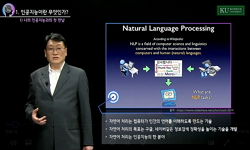It is critically important to identify unexpected loose parts in a nuclear reactor pressure vessel, since they may collide with and cause damage to internal structures. Mass estimation can provide key information regarding the kind as well as the loca...
http://chineseinput.net/에서 pinyin(병음)방식으로 중국어를 변환할 수 있습니다.
변환된 중국어를 복사하여 사용하시면 됩니다.
- 中文 을 입력하시려면 zhongwen을 입력하시고 space를누르시면됩니다.
- 北京 을 입력하시려면 beijing을 입력하시고 space를 누르시면 됩니다.



MASS ESTIMATION OF IMPACTING OBJECTS AGAINST A STRUCTURE USING AN ARTIFICIAL NEURAL NETWORK WITHOUT CONSIDERATION OF BACKGROUND NOISE
한글로보기https://www.riss.kr/link?id=A100954956
- 저자
- 발행기관
- 학술지명
- 권호사항
-
발행연도
2011
-
작성언어
English
- 주제어
-
등재정보
SCIE,SCOPUS,KCI등재
-
자료형태
학술저널
- 발행기관 URL
-
수록면
343-354(12쪽)
- DOI식별코드
- 제공처
-
0
상세조회 -
0
다운로드
부가정보
다국어 초록 (Multilingual Abstract)
It is critically important to identify unexpected loose parts in a nuclear reactor pressure vessel, since they may collide with and cause damage to internal structures. Mass estimation can provide key information regarding the kind as well as the location of loose parts. This study proposes a mass estimation method based on an artificial neural network (ANN), which can overcome several unresolved issues involved in other conventional methods. In the ANN model, input parameters are the discrete cosine transform (DCT) coefficients of the auto-power spectrum density (APSD) of the measured impact acceleration signal. The performance of the proposed method is then evaluated through application to a large-sized plate and a 1/8-scaled mockup of a reactor pressure vessel. The results are compared with those obtained using a conventional method, the frequency ratio (FR) method. It is shown that the proposed method is capable of estimating the impact mass with 30% lower relative error than the FR method, thus improving the estimation performance.
동일학술지(권/호) 다른 논문
-
PYROPROCESSING TECHNOLOGY DEVELOPMENT AT KAERI
- Korean Nuclear Society
- Lee, Han-Soo
- 2011
- SCIE,SCOPUS,KCI등재
-
PYROPROCESSING FLOWSHEETS FOR RECYCLING USED NUCLEAR FUEL
- Korean Nuclear Society
- Williamson, M.A.
- 2011
- SCIE,SCOPUS,KCI등재
-
ELECTROCHEMICAL PROCESSING OF USED NUCLEAR FUEL
- Korean Nuclear Society
- Goff, K.M.
- 2011
- SCIE,SCOPUS,KCI등재
-
- Korean Nuclear Society
- Sur, Uk-Hwan
- 2011
- SCIE,SCOPUS,KCI등재




 ScienceON
ScienceON






